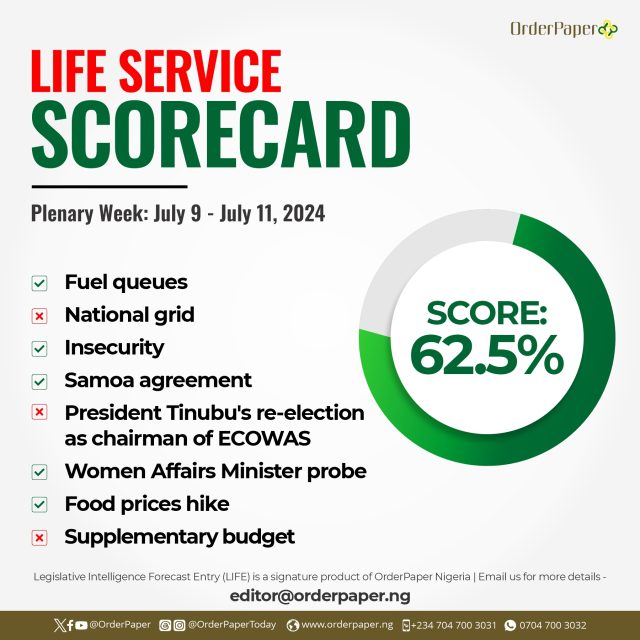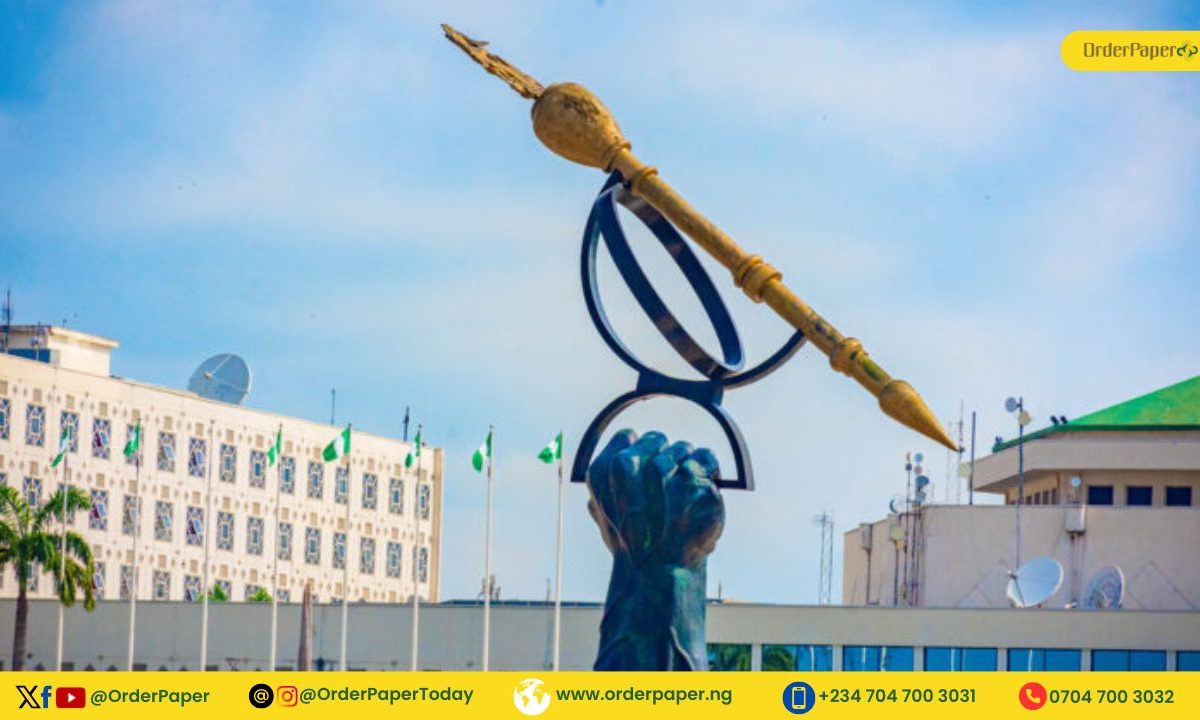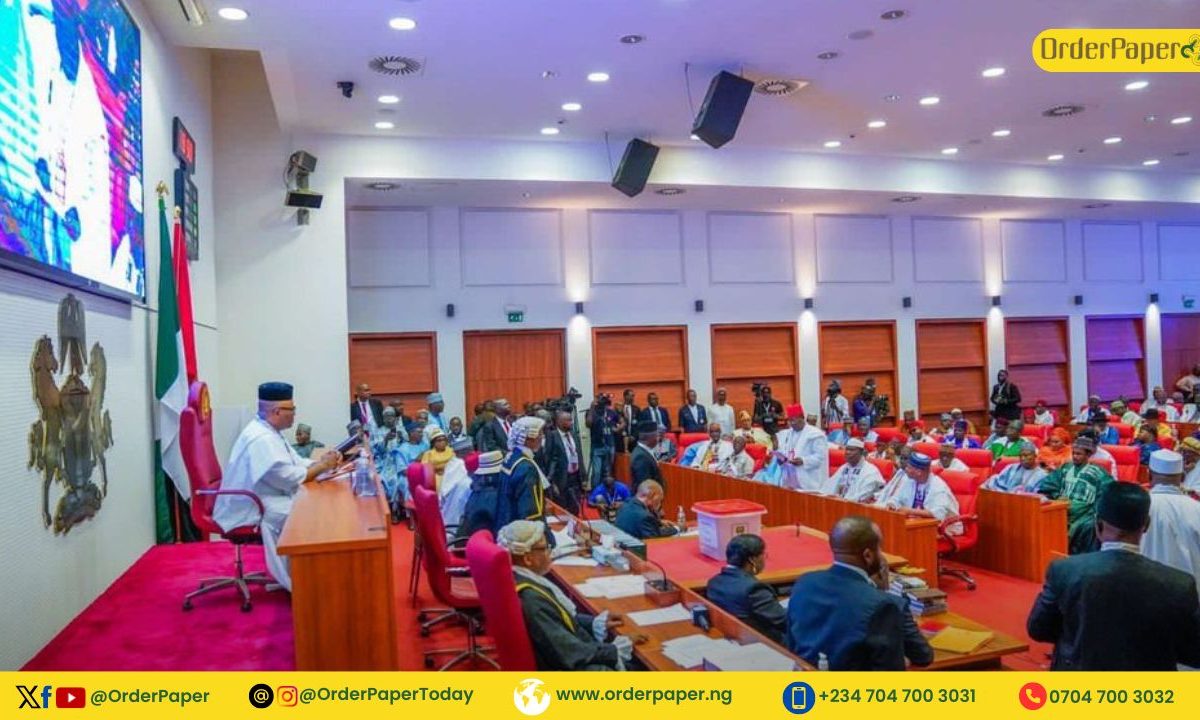As the National Assembly gears up for another legislative week, OrderPaper in this Legislative Intelligence Forecast Entry (LIFE) presents a possible wide range of issues that will be addressed

Over the previous week there were a series of pressing issues which have called for urgent attention by citizens. As the National Assembly reconvenes for another legislative week, it is expected that calls for investigation into the rising cases of building collapse, flood crisis, food inflation amongst others would be made. A recent case of rape of a minor by policeman amy also be tabled.

Another death and adjournment
Barely a week after the death of Rep. Prince Olaide Adewale Akinremi, popularly known as Jagaban, another lawmaker at the House of Representatives has also passed away. Rep. Ekene Abubakar Adams until his death, represented Chikin/Kajuru federal constituency of Kaduna State on the platform of the Labour Party. He chaired the Committee on Sports. As a tradition, both chambers of the National Assembly are expected to suspend legislative activities including its Tuesday plenary sittings in honour of the deceased lawmaker.
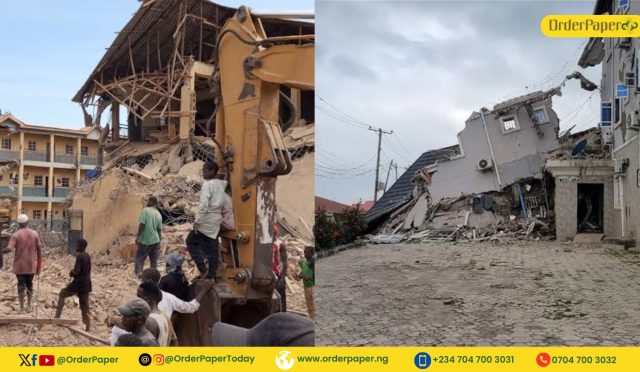
Building collapse
There was a two-storey school building collapse on Friday last week in Jos which reportedly took the lives of 22 people in Busa Buji community of Jos North LGA, Plateau State. The incident which had about 132 people injured had occurred while students and teachers were in classes for the third term examination. Less than 24 hours after that, a two-story residential apartment collapsed in Abuja on Saturday morning with several people trapped in the rubble. However two people were rescued and taken to the Kubwa general hospital. In a separate incident another building collapsed at unity house Area 11, Gariki, in Abuja. Eyewitnesses reportedly disclosed that landlords who own numerous houses in Kubwa consistently use substandard materials which might have led to the sudden collapse. At plenary this week, lawmakers are expected to address these issues and call on the Federal Emergency Management Agency (FEMA) to provide support and relief materials for the victims.

Alleged rape of a minor by a policeman
The National Assembly is likely to call on the Inspector General of Police to investigate a recent issue of rape on a 17-year old girl by a policeman In Ogudu area of Lagos State. Reports have it that the incident had taken place after the victim approached the suspect for assistance in recovering her phone which was stolen by one chance robbers. The suspect who had promised to assist her in retrieving the stolen phone reportedly assaulted her. The police commission had assured that they will not shield the suspect from facing the law.

Nigeria’s perennial flood crisis
Nigeria regularly experiences seasonal flooding which has disrupted agricultural production and also intensified the country’s struggle to achieve food security leaving millions of Nigerians vulnerable to hunger. Statistics from the National Emergency Management Agency (NEMA) shows that at least 33,983 Nigerians were affected by flooding in 2023 with 7,353 displaced from their homes, 75 injured and 5 lives lost with over 1,600 houses and 866 hectares of farmland destroyed. This is a harsh reminder of the recurring flood catastrophes that have plagued the country claiming lives, properties and infrastructure. The lawmakers in the National Assembly are likely to present motions to address these floods in some parts of the country, given that we are currently in the rainy season.
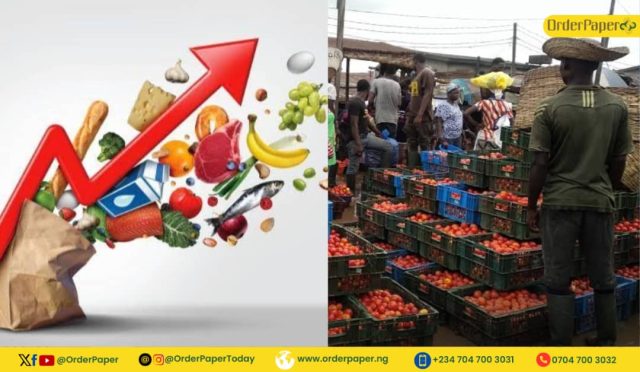
Worsening food crisis and new inflation figure
According to the latest data from the National Bureau of Statistics (NBS) Nigeria’s inflation figure has reached a new high, hitting 34.19 percent for June 2024. The new data shows an increase of 0.24 percent points when compared to the inflation figure for May 2024. This is coming as the country faces its worst food crises in many decades with rising cost of food items pushing essential commodities beyond the reach of millions. The food inflation rate in the month under review was 40.87 percent year-on-year compared to 40.66% recorded in May 2024.This is 15.62 percentage points higher than the rate of 25.25 percent recorded in June 2023. The NBS said the rise in food inflation on a year-on-year basis was caused by increases in prices of millet, whole grain, garri, guinea corn, etc (bread and cereals class), yam, water yam, coco yam (potatoes, yam & other tubers class), groundnut oil, palm oil, etc (oil & fats class), catfish, dried fish-sardine, mudfish (fish class), etc. According to the bureau, the month-on-month food inflation rate in June 2024 was 2.55 percent, which shows a 0.26 percent increase compared to the rate recorded in May 2024 (2.28 percent). With this increasing rate of food inflation, several calls have been made by citizens for lawmakers to look into the worsening issues. As representatives of the people, motions are likely to be presented in both chambers to alleviate the hardship faced in the country.

A possible health bill
It is no longer news that the Nigerian health system faces numerous challenges, impacting the quality and accessibility of healthcare. Given the numerous challenges affecting the health sector, a dialogue targeted at improving collaborative efforts between national and subnational governments and other key players in the health sector was held on Monday by the Federal Government to address the performance of the health sector across the country in the past months. Recently, the World Bank’s Human Capital Public Expenditure and Institutional Review rated Nigeria’s health budget as the lowest globally. According to the review: “Nigeria ranks near the bottom in Africa in Universal Health Coverage. With a score of 44, Nigeria’s Universal Health Coverage (UHC) index has seen some improvement over time but still ranks among the lowest in the African region.”This alarming situation needs urgent attention and the National Assembly is expected to react accordingly.

Local Government Autonomy
For several years running, local governments in Nigeria struggled under the heavy hand of state governors who largely had control over their affairs. This control manifested in various ways, including the dissolution of elected councils, the appointment of caretaker committees, and the manipulation of local government funds through the State Joint Local Government Account. As a result, a decisive move was taken by the Supreme Court last Thursday to set the councils free from the tight fist of governors by granting them financial autonomy. The court declared the governors’ retention of local government funds as a violation of the 1999 constitution. The ruling upholds the constitutional guarantee of a system of local government by democratically elected councils, as enshrined in section 7 of the 1999 Constitution. The judgement mandates that local governments should receive their funds directly from the Federation Account, bypassing state governments. Experts are now calling on the National Assembly and State Houses of Assembly to enact supportive legislation to further entrench local government autonomy and prevent any future attempts to undermine it. This is likely going to be enlisted amongst other items on the order paper this week.
LIFE last week
In line with transparency and self-accounting principles, OrderPaper has evaluated predictions made in last week’s Legislative Intelligence Forecast Entry (LIFE) and announced a score of 62.5 percent correctness. Read this LIFE report card for more details.
